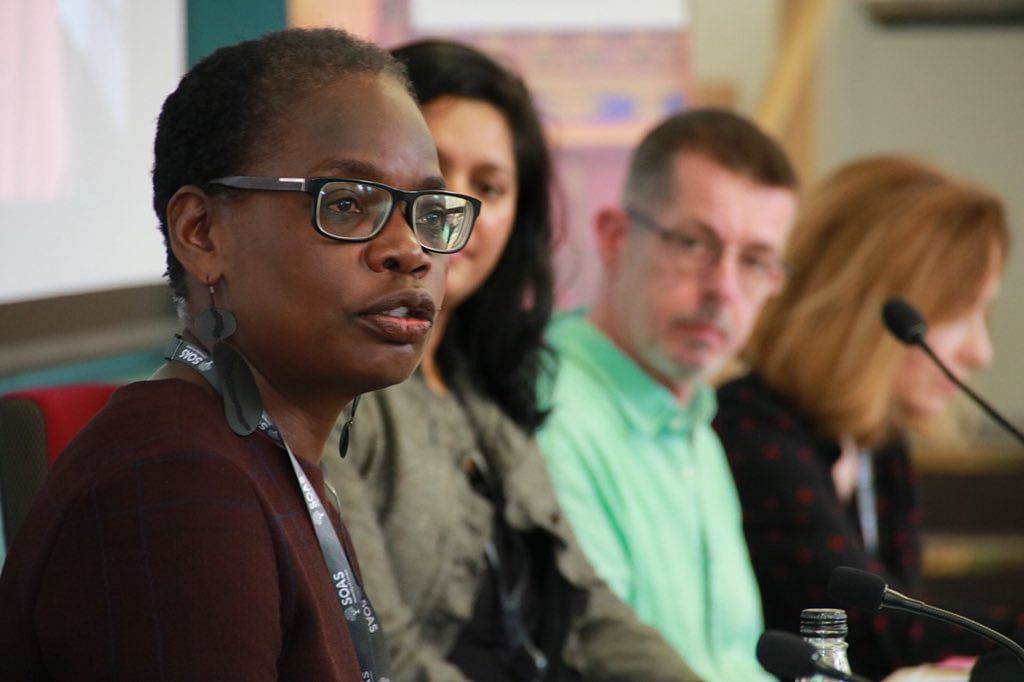
When she applied for the position of Deputy Chief Justice in 2013, few had heard of Prof Phoebe Okowa. Media reports at the time mostly referred to her as a “foreign-based lawyer”.
She was one of the five shortlisted candidates for the job. Justice Kalpana Rawal emerged victorious though.
Despite that setback, Prof Okowa would later join the Kenyan legal team that was defending the country’s territorial integrity against Somalia’s claims at the International Court of Justice (ICJ).
On Friday, however, Prof Okowa hit a new high, after her election to the International Law Commission (ILC), a subsidiary organ of the United Nations.
Out of the 14 candidates for the nine positions available to Africans, she got the third-highest number of votes at 162, three fewer than Alioune Sall of Senegal who got the second-highest number of votes and seven less than Charles Jalloh of Sierra Leone.
Of the 14 African candidates, she was the only female. And so with her election, she becomes the first African woman to be elected to the commission. Former Attorney-General Amos Wako served in the commission after he left the position.
Prof Okowa had been nominated by the Kenya government and had the firm backing of the UK. She is a professor of Public International Law and Director of Graduate Studies at the Queen Mary University of London.
News of Prof Okowa’s election was well-received. Law Society of Kenya (LSK) chief executive officer Mercy Wambua termed it a great milestone for the country and the region.
According to Ms Wambua, her election has set the pace for women aspiring for leadership positions and success.
“The election of Prof Phoebe Okowa is not just important especially to women who aspire for leadership positions in Kenya, Africa and beyond, but also speaks to the quality of lawyers we have in the country and those that Kenya has produced. As the Law Society of Kenya, we congratulate her and could not have been more proud of her and her achievements,” said Ms Wambua.
“Congratulations @Phoebe_Okowa on your election to the International Law Commission! As an eminent scholar and practitioner, and as the first African woman elected to the ILC, your brilliance will illuminate that body,” Kenya’s Permanent Representative to the UN Martin Kimani tweeted.
Reacting to her election, Prof Okowa thanked the UN member states for electing her to serve in the commission for the term starting 2023 to 2027.
“Throughout the campaign experience, I have remained conscious that the ILC is a subsidiary organ of the UN that is at its most effective working in collaboration with the sixth committee. I look forward to working with the other members of the commission and those on the Sixth Committee as the commission continues its vital work in responding to the defining challenges of our generation,” she said in a statement.
Her election does not come as a surprise. Her CV is impressive. She graduated at the top of her 1987 class at the University of Nairobi in her undergraduate studies. By so doing, she was also the first woman to be awarded a First-Class Honours degree in the history of the Faculty of Law.
According to her CV, the late Dr Bonaya Godana, Kenya’s one-time foreign affairs minister, who introduced her to international law.
She then proceeded to the University of Oxford on a Foreign and Commonwealth Office Scholarship, obtaining the Bachelor of Civil Law (BCL) degree in 1990. Subsequently, she completed a doctoral thesis (DPhil) at Oxford in the field of Public International Law.
“Her monograph on State Responsibility for Transboundary Air Pollution published by Oxford University Press remains the definitive work on the legal challenges that environmental harm presents for traditional methods of accountability in International Law,” her profile on Queen Mary University of London portal reads.
In 2020, she was one of the recipients of the 8th C.B. Madan Prize awarded to post-doctoral legal scholars of the University of Nairobi’s School of Law for their “commitment and outstanding scholarly contribution to constitutionalism and the rule of law in Kenya.”
She is an advocate of the High Court of Kenya and in 2017, she was nominated by the Government of Kenya to the Permanent Court of Arbitration where she is currently a permanent member.


















